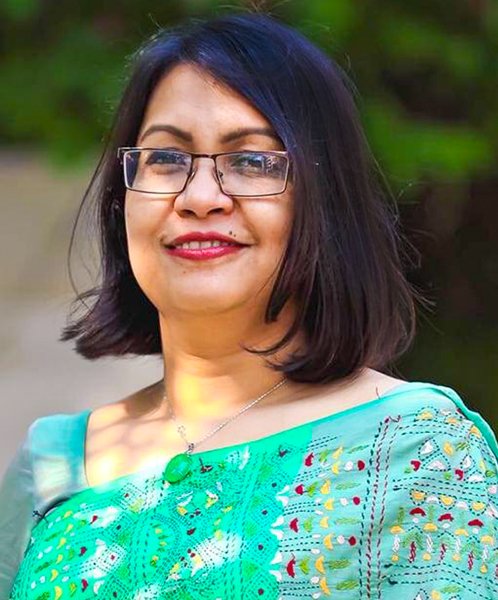Taking the necessary precautions against COVID-19 coronavirus is a privilege many people living in poverty do not have.
The World Health Organization (WHO) recommends frequent handwashing with soap and water for 20 seconds to protect against COVID-19, along with social distancing, avoiding touching the face, and practicing respiratory hygiene.
Without access to clean running water or space to isolate, it is difficult to prevent the spread of the disease in low-income countries.
Hasin Jahan, Bangladesh country director at the organization WaterAid, is working to ensure the most vulnerable communities have access to water and sanitation (WASH) to stay safe and healthy during the pandemic. WaterAid launched the #FightCoronaUnited campaign to respond to the impact of COVID-19 in the country considered the 25th most vulnerable country affected by the virus. The organization is also working closely with its government to develop hygiene behavior change programs.
Jahan spoke with Global Citizen about the challenges the organization is facing while promoting safe hygiene, the need to prioritize WASH in relief efforts, and more.
Read her story below.
We are working both in rural and urban settings, and mostly with slum and low-income communities. We are working for the people in hard-to-reach areas, the most vulnerable people — including persons with disabilities, elderly people, children, and women — in six city corporations, four municipalities, and 19 districts.
In the slum areas, people are living in very congested places. You can find three to 11 people living in one single room. You can imagine how difficult the typical messaging we are offering everybody to practice social distancing and quarantine is.
They are using common water and sanitation facilities, handwashing facilities, toilet facilities, bathing facilities in slums. Reaching people and supporting in such densely populated communities is a critical challenge.

The government declared lockdown at the same time that WaterAid adopted a 'no-harm approach' so that we will work with minimum contact or no contact. Reaching our target people in slums in a rural area, through online media or minimum contact, reaching them with the right message, and pushing them to practice handwashing and other things, is really, really difficult.
We are promoting handwashing. Why are we promoting handwashing? Because this is one of the most effective preventive measures, but handwashing is only possible when there are facilities, handwashing stations, water.
Change of behavior and hygiene promotion are two different things. We are promoting hygiene with an ambition that they will be changing their behavior. Because the media is so vibrant, everybody is getting the message, and they know that they have to wash their hands — but they are doing it out of fear, not as a part of their regular lifestyle or their habits, or as a norm. Changing this behavior into the norm needs long-term investment as well. Overnight, that sort of habit cannot be really developed.
We are developing the messages in a way that people understand: if I wash my hands regularly, I will be safe from several other diseases, not only COVID, and this should be part of our day-to-day life.
We are working for the most vulnerable people and persons with disabilities, we need to be sensitive about them. We need to tailor the messages so that they can hear.
When we are talking about washing hands, we are showing them that you have to rub two hands and open the tap. If there is no running water, you use a mug and you wash your hands properly. What will happen if somebody has only one hand? What exclusive message are we giving on how to wash that hand? If somebody is hard of hearing, are we using sign language in our messages so that that person also knows what is happening? We should be sensitive about designing our program and all these require higher investment because you need specialized support for them.
International communities are now coming to help, though a little bit late. They are putting more attention on patient management.
Soap is critically important because unless people have soap, they will not be able to wash their hands and during this crisis, when people are actually suffering from not earning money, it is not expected that they will go and buy soap instead of food. Soap is equally important, and it should be a part of the entire relief operation.
More and more attention is needed for WASH, both in terms of having the facilities and delivering the messages.
Use of soap and availability of soap, availability of handwashing stations — all these are enabling factors to allow people to wash their hands and motivate people to wash their hands.
It is now an issue of global health security.
It is not only for Bangladesh, it is not only for poor people — it is for all and it is an issue of global health security concerns.
This piece has been edited and condensed for clarity and length.